Episode 1710: Same Sex Blessings in the Catholic Church - Yes be Yes, No be No
But let me explain this so we as Catholics are not confused.
Do you remember The "Dubia" (Latin for "doubts") a set of five questions presented by four cardinals to Pope Francis in 2016 seeking clarification on certain points related to the apostolic exhortation "Amoris Laetitia." I will not go into all 5 questions because I covered that in a separate episode but rather the one that has proven to be especially important based on Pope Francis latest decree.
All the questions sought clarification on certain points of doctrine, particularly related to the apostolic exhortation "Amoris Laetitia," which was issued by Pope Francis in 2016 and focused on the family. "Amoris Laetitia" is a Latin term that translates to "The Joy of Love" in English. It is the title of an apostolic exhortation written by Pope Francis and released on April 8, 2016. The document is subtitled "On Love in the Family" and addresses various aspects of family life, marriage, and relationships within the context of the Catholic Church.
The specific questions (Dubia) related to the interpretation of "Amoris Laetitia" and issues of moral theology, particularly regarding the admission of divorced and civilly remarried Catholics to Holy Communion. The cardinals sought yes-or-no answers to these questions in order to address what they perceived as ambiguities in the document.
The questions primarily revolved around the interpretation of certain passages in "Amoris Laetitia" and how they aligned with traditional Catholic teaching on marriage, the indissolubility of marriage, and the reception of the sacraments. Then a group of Cardinals sent another set of questions which included the question over homosexual unions and marriages.
The Cardinals, consisting of Burke, Walter Brandmüller, Juan Sandoval Íñiguez, Robert Sarah, and Joseph Zen, submitted the first set of dubia on July 10, 2023.
It's worth noting that Pope Francis did not formally respond to the 1st Dubia questions with a simple yes or no but, instead, encouraged open discussion and debate within the Church.
In regard to the 2nd set of questions and especially around
2. Dubium regarding the assertion that the widespread practice of blessing same-sex unions is in accordance with Revelation and the Magisterium (CCC 2357).
According to the Divine Revelation, attested in Sacred Scripture, which the Church teaches, “listening to it devoutly, guarding it scrupulously and explaining it faithfully in accord with a divine commission and with the help of the Holy Spirit" (Dei Verbum, 10), "In the beginning," God created mankind in his own image, in the image of God he created them; male and female he created them, and blessed them to be fruitful (cf. Genesis 1:27-28) and hence, the Apostle Paul teaches that denying sexual difference is the consequence of denying the Creator (Romans 1:24-32).
We ask: can the Church deviate from this "principle," considering it, in contrast to what was taught in Veritatis splendor, 103, as a mere ideal, and accept as a "possible good" objectively sinful situations, such as unions with persons of the same sex, without departing from the revealed doctrine?
Pope Francis's Response to the Second Dubium
a) The Church has a noticeably clear understanding of marriage: an exclusive, stable, and indissoluble union between a man and a woman, naturally open to procreation. Only this union can be called "marriage." Other forms of union realize it only in "a partial and analogous way" (Amoris Laetitia 292), so they cannot be strictly called "marriage."
b) It is not just a matter of names, but the reality we call marriage has a unique essential constitution that requires an exclusive name, not applicable to other realities. It is undoubtedly much more than a mere "ideal."
c) For this reason, the Church avoids any type of rite or sacramental that might contradict this conviction and suggest that something that is not marriage is recognized as marriage.
d) However, in our relationships with people, we must not lose pastoral charity, which should permeate all our decisions and attitudes. The defense of objective truth is not the only expression of this charity; it also includes kindness, patience, understanding, tenderness, and encouragement. Therefore, we cannot be judges who only deny, reject, and exclude.
e) Therefore, pastoral prudence must adequately discern whether there are forms of blessing, requested by one or more persons, which do not convey a mistaken concept of marriage. For when a blessing is requested, it is expressing a plea to God for help, a supplication to live better, a trust in a Father who can help us live better.
f) On the other hand, although there are situations that are not morally acceptable from an objective point of view, the same pastoral charity requires us not to simply treat as "sinners" other people whose guilt or responsibility may be mitigated by various factors affecting subjective accountability (Cf. St. John Paul II, Reconciliatio et paenitentia, 17).
g) Decisions that may be part of pastoral prudence in certain circumstances should not necessarily become a norm. That is, it is not appropriate for a Diocese, a Bishops' Conference, or any other ecclesial structure to constantly and officially enable procedures or rituals for all kinds of matters, because not everything that "is part of a practical discernment in particular circumstances can be elevated to the level of a rule" as this "would lead to an intolerable casuistry" (Amoris laetitia, 304). Canon law should not and cannot cover everything, nor should Episcopal Conferences with their varied documents and protocols claim to do so, as the life of the Church flows through many channels other than normative ones.
Sorry that is not a simple yes or no or what Chrost n the Sermon on the Mount, Jesus did address the manner of our speech, but rather than dictating a "yes yes, no no" format, he emphasized clarity, honesty, and integrity in our communication. Here is what he said:
"But let your 'Yes' be 'Yes,' and your 'No' be 'No.' Anything more comes from the evil one." (Matthew 5:37)
So, It is just more of the same over speak we have heard from the V2.
Okay so let us unpack this and not with emotion but rather truth using the Church’s teachings (doctrines) according to faith and morals.
The question of whether a Pope could bless same-sex marriages according to Traditional Catholic Doctrine is the very first question.
The Catholic Church teaches that marriage is a sacrament, a sacred union between one man and one woman for life. This understanding is based on scripture and centuries of church tradition.
Same-sex relationships are not considered marriages within the Church's official teachings. Also same sex relations outside marriage are not allowed by the Church and so you can not bless what is not holy.
Now for the second question. Does a pope have Papal Authority to approve same sex marriages?
The Pope cannot change established doctrines or contradict previous pronouncements of Popes or Church councils.
Now for a third question. Can Pope Francis respect and understanding the Homosexual Catholics. He can understand them and pray for them but can never respect anything that is sinful.
Does Gods Laws supersede even a Pope?
Arguments for Natural Law Supremacy:
Universal and Immutable: The natural law, derived from reason and inherent in human nature, transcends the doctrine of the church. It reflects God's fundamental moral order and is therefore considered universally binding and unchanging.
Basis for Church Doctrines: Some theologians view natural law as the foundation on which specific church doctrines are built. Doctrines that contradict natural law are seen as potentially flawed or in need of reinterpretation.
Guidance for Conscience: In situations where church doctrines are unclear or seem inadequate, natural law can offer guidance for individual conscience and ethical decision-making.
The Catholic Church recognizes the importance of both natural law and Church doctrines. The Catechism of the Catholic Church states that natural law "participates in 'the wisdom and goodness of the Creator who gives to every man the ability to distinguish good and evil'". (CCC 1954) However, it also emphasizes the role of divine revelation and Church authority in providing more specific moral guidance and interpretations of natural law.
-
 21:46
21:46
CatholicReboot
2 months ago $0.03 earnedEpisode 2003: The Eucharist Sacrament of Love and Life
99 -
 24:06
24:06
CatholicReboot
3 months ago $0.01 earnedEpisode 1916: Divine Love, Eternal Truth: A Catholic Journey
494 -
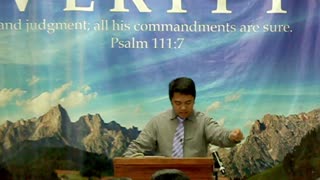 1:22:47
1:22:47
elderry
5 months agoVBC Manila | Wednesday Night Service | Pastor Matthew Stucky,
16 -
 52:28
52:28
The Uncensored Catholic
5 months agoEpisode 10: The Authority of the Church Part 5
12 -
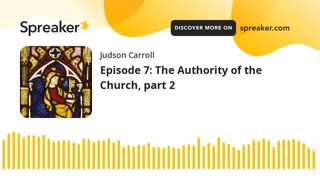 38:42
38:42
The Uncensored Catholic
5 months agoEpisode 7: The Authority of the Church, part 2
15 -
 1:20:55
1:20:55
elderry
3 months ago2 Chronicles 26 The Dark Side of Success | Pastor Roger Jimenez visits Faithful Word Baptist Church
98 -
 1:50:42
1:50:42
elderry
5 months agoJesus, The Main Character of the Christmas Story (Part 6) | Pastor Roger Jimenez
26 -
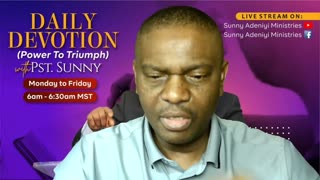 34:19
34:19
HandinHandwithGodTv
2 months agoMentions You @ Power To Triumph || Sex Was Made To Be Enjoyed Within Marriage || March 29, 2024
22 -
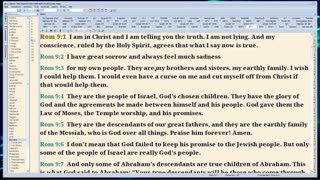 27:33
27:33
Nightring
1 month ago $0.05 earned05-11-2024 - Remember the Sabbath - Romans 10-5 Votd - Salvation is through faith - Show More
412 -
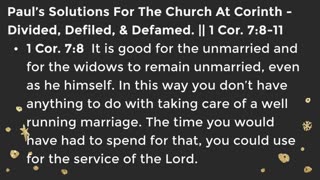 30:50
30:50
HandinHandwithGodTv
2 months agoMentions You @ Power To Triumph || Enjoy Every Season Of Your Life Married or Not || April 2, 2024
7